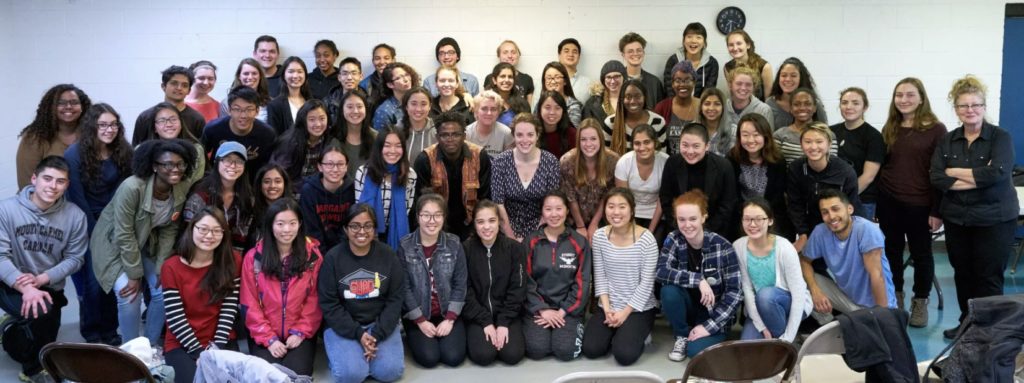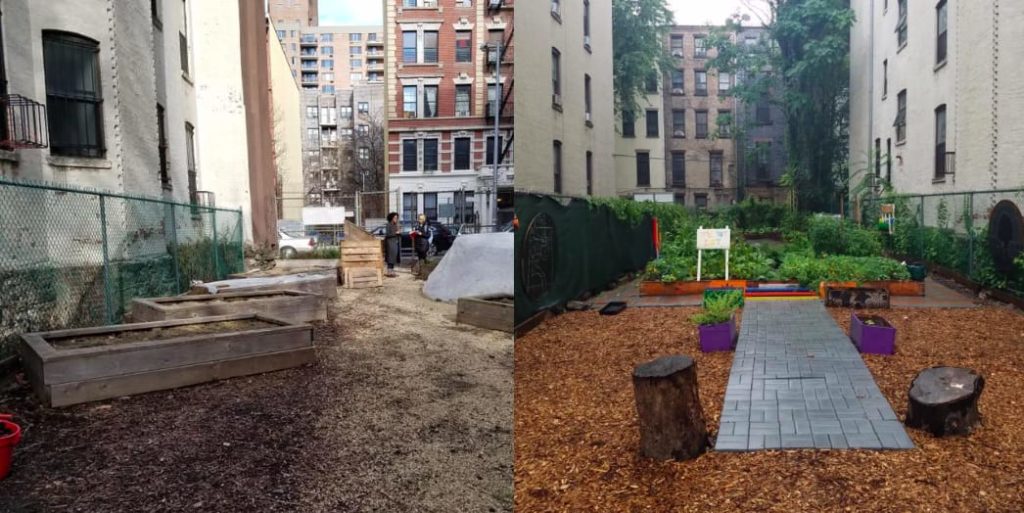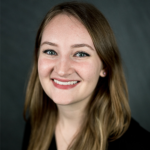Cornell University fosters a broad, thoughtful, and giving community, both on campus and around the world. As co-president of Cornell Alternative Breaks, one of the largest student service programs at Cornell, Jessica Wu embodies Cornell’s commitment to service. Wu, a Cornell senior and biological sciences major from San Jose, California, recently sat down with eCornell’s Jamie Bonan to discuss how the Alternative Breaks program engages in impactful service projects throughout the year.
Cornell Alternative Breaks hosts over a dozen spring break service-learning trips for Cornell students to different agencies across the U.S., all of which address a variety of social justice issues. Throughout the year, students on the trip meet weekly for educational and preparatory meetings.
What follows is an abridged version of their conversation.
Bonan: Hi Jessica! First, how did you get involved in Alternative Breaks?
Wu: I entered the program my sophomore year as a team participant and visited the Goddard Riverside Community Center in New York City. Our student team engages with two of Goddard’s programs: The Other Place, which provides integrated services to adults with histories of mental illness, homelessness, and substance abuse; and Green Keepers, which provides community members with paid on-the-job training and coaching in horticulture and street sanitation. After learning and becoming invested in the social justice issues in this community, I decided to remain with the program as Goddard’s Trip Leader my Junior year.
Bonan: And Alternative Breaks is one of the largest student programs of Cornell’s Public Service Center. Can you give some background to the history of the PSC at Cornell?
Wu: The PSC was founded in 1991 by Cornell’s president at the time, Frank H. T. Rhodes, to institutionalize faculty and student community engagement and outreach. Overall, the PSC’s mission is to champion the conviction that the Cornell University experience confirms service as essential to becoming an active member of society. ‘Service-learning’ is the philosophy that guides the PSC and Alternative Breaks. Service-learning rather than service without learning enhances academic research with practical experiences, strengthens civic values, and responds to community needs. Right now, the PSC has over 30 organizations that are entirely student-led and engages over 6,000 students. We’ve also contributed 27,000 service hours to the community surrounding Cornell’s campus.
Bonan: That’s really incredible. How did Alternative Breaks get its start as a program inside the PSC?
Wu: Our program also started in 1991, after 11 Cornell students returned from a spring break service trip and put their energies into creating a more sustainable program. Our Program Advisor Joyce Muchan joined in 1999, and we’ve since expanded to include trips to 13 different agencies, all of which cover a wide variety of social justice issues.
Bonan: Wow, 13 agencies! What are some of those agencies and communities?
Wu: Most of our agencies are in New York City, upstate New York, and Florida. It’s really important to our program that we maintain our long-term relationships with the agencies we work with; the opportunities and access that these agencies provide our students is not something we take for granted. Some of our partner agencies, like Girls Educational and Mentoring Services (GEMS) and True Colors Residence, we have worked with for nearly a decade. Other agencies, like Harlem Grown, we are so excited to have recently begun our partnership in the last two years.

Bonan: Your program accepts approximately 100 students each year. What does their involvement look like?
Wu: It’s definitely not just over the week of spring break! Before the trip, students participate in a rigorous 12-week curriculum that provides education on the principles of service-learning, which we use as tools to reflect on our own privileges and bias as we engage with the community and agency. Every student also works on an in-depth analysis of the root causes of social issues that the agency addresses, in order to dig beyond surface-level explanations for systemic inequalities. During the trip itself, participants complete workshops and projects with their agencies and hold nightly team sessions to critically reflect on their experience. After the trip, all students in the program write a reflection paper, present on their experience in a program-wide meeting, and compare their initial root cause analysis to an analysis they work on with agency members.
Bonan: You mentioned workshops and projects that students complete on the trip. What are some of those projects?
Wu: Our student team that visited GEMS in New York City recently completed an impact study looking at the 20-year development of the anti-Commercial Sexual Exploitation of Children (CSEC) movement. Before this impact study, there wasn’t much research done on tracking the CSEC movement across time, so it’s been valuable for the agency, community, and even Cornell students back on campus. Some other students visited Womankind, a safe house in New York City that works with survivors of gender-based violence and trauma, and created a banner with quotes from survivors in their native languages, filmed a welcome video for residents, and hosted arts & crafts workshops and activities. And at Harlem Grown in New York City, students transformed an abandoned urban lot into a sensory garden, supporting the agency’s mission in urban farming, sustainability, and nutrition.

Bonan: Giving Tuesday is just one day. What would you say to someone looking to become involved?
Wu: I’d say service is a life-long effort of continuous education, reflection, and community engagement. It’s never too late to start on the path toward becoming a conscientious member of society.
If you’re interested in following Alternative Breaks students on their journey, follow along on Facebook or Instagram, and you can also email Jessica Wu at altbreaks@cornell.edu.

Jamie Bonan

Latest posts by Jamie Bonan (see all)
- Cornell’s New Executive Women in Leadership Certificate Program - February 14, 2019
- Cornell’s New Certificate Program Develops Skills to Lead with Character - February 11, 2019
- Cultivate Strategic Approach to Organizational Management - January 14, 2019